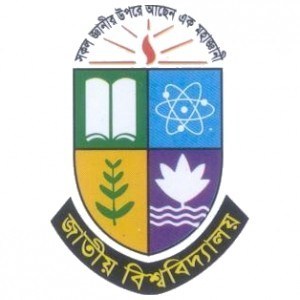Photos of university / #uni.bayreuth
The African Language Studies programme provides students with a deep and well-founded theoretical understanding of a wide range of topics in African linguistics; it also provides a qualified insight into the enormous diversity of languages on the African continent. The students acquire competence in two or three African languages, and they become acquainted with manifold aspects of African linguistics, including the societal, cultural and historical conditions and usages of African languages. Learning African languages should always be closely combined with acquiring knowledge about the historical, social and cultural norms encoded in language structures, and about the speakers who use these languages in different cultural settings. One of the aims of the MA studies programme is thus to understand and to analyse and/or classify knowledge encoded in language structures.
The special area Comparative Studies focuses on academic and use-oriented linguistic competence with reference to Africa. This includes knowledge of the characteristics of African language phyla and families, knowledge of the variety of structural features found in African languages and language groups, and knowledge of comparative linguistic approaches. The Comparative Studies area allows analysis of more general linguistic problems, and of their cultural and societal conditions. Typological, comparative, historical, semantic, pragmatic and sociolinguistic topics will be dealt with, using examples from African languages belonging to different language families.
The special area Swahili Studies provides academic and pragmatic competence with special reference to Swahili language and literature. Swahili is an African language with a long tradition as a lingua franca and trade language. It is widely spoken in East Africa and is the official medium of communication in Kenya and Tanzania. Swahili culture is reflected in a rich historical and contemporary literary tradition: study of this tradition is embedded in the programme thanks to the participation of the chair of Literatures in African Languages, which is unique in Germany.
The special area Comparative Studies focuses on academic and use-oriented linguistic competence with reference to Africa. This includes knowledge of the characteristics of African language phyla and families, knowledge of the variety of structural features found in African languages and language groups, and knowledge of comparative linguistic approaches. The Comparative Studies area allows analysis of more general linguistic problems, and of their cultural and societal conditions. Typological, comparative, historical, semantic, pragmatic and sociolinguistic topics will be dealt with, using examples from African languages belonging to different language families.
The special area Swahili Studies provides academic and pragmatic competence with special reference to Swahili language and literature. Swahili is an African language with a long tradition as a lingua franca and trade language. It is widely spoken in East Africa and is the official medium of communication in Kenya and Tanzania. Swahili culture is reflected in a rich historical and contemporary literary tradition: study of this tradition is embedded in the programme thanks to the participation of the chair of Literatures in African Languages, which is unique in Germany.
Educational organisation
The MA African Language Studies programme is organised in modules. These include language courses that provide students with African language knowledge for both academic and communicative usage. Advanced course modules offer detailed insights into language in its linguistic and literary contexts. Applied course modules add practical and methodological aspects to the students' basic knowledge and broaden their theoretical competence. A skills interface is offered through a comprehensive seminar which brings the above aspects in relation to each other and correlates them with the individual academic foci of the students.Forms of assessment
Types of exams to be passed:- language course modules
- written examinations of 45 minutes, final written examination of 90 minutes, relevant for Master's grade
- advanced course modules
- active participation, work on a topic of suitable scope in written form, grades relevant for final Master's grade
- research colloquium
- regular attendance, presentation of topic of Master's thesis of 45 minutes
- applied course modules
- active participation, completion of individual tasks (written assignment, short oral presentations), oral examination (20 minutes)
- skills interface
- oral examination (60 minutes)
- Master's thesis
- submission of Master's thesis
Course objectives
The Master's programme will enable students to successfully deal with the academic analysis of problems and issues in (African) linguistics and literary studies. They will acquire competence in academic work routines, in the adequate understanding of up-to-date research issues, and in writing research-oriented seminar papers. Students will show their learning progress by conducting original research and presenting its results, and by taking examinations. In a final Master's thesis, they will deal with an individually chosen research topic and prove their professional and methodological competence.Language requirements
English proficiency (equivalent to level B2+ European Framework of References for Languages).For the special area Swahili Studies, a good command of Swahili is compulsory (equivalent to B1 European Framework for Reference for Languages).
Language skills can also be proven through a final dissertation or equivalent written papers in English (or Swahili).
Academic requirements
- Bachelor of Arts (good success) in linguistics or in non-European languages
- English (equivalent to level B 2+ European Framework of Reference for Languages)
- For the special area of Swahili studies, a good command of Swahili is compulsory (equivalent to B1 European Framework of Reference for Languages).
- Language skills can also be proven through a final dissertation or equivalent written papers in English or Swahili.
Enrolment fees
Social fee: approx. 65 EUR per semesterCosts of living
Approx. 750 EUR per month to cover personal expensesJob opportunities
Due to the intensive nature of the programme, students will have only limited time for part-time jobs.Funding opportunities within the university
Students coming to Bayreuth from a partner university may have the opportunity to receive some financial support from the University of Bayreuth.http://www.international-office.uni-bayreuth.de/en/05_Grants/index.html
Arrival support
The International Office with its Service for International Students (SIS) assists students before and upon arrival (mailing of information, pick-up service from the station). It offers assistance in all administrative matters including registration and enrolment.Services and support for international students
The International Office with its Service for International Students (SIS) offers administrative, academic, and social support before and during the semester.Accommodation
The International Office offers assistance in finding accommodation in a student residence (rent approx. 120 EUR to 200 EUR per month) or private accommodation (250 EUR to 400 EUR).However, a search on the private market as a backup is advisable. You can find links to the private market on our website.








